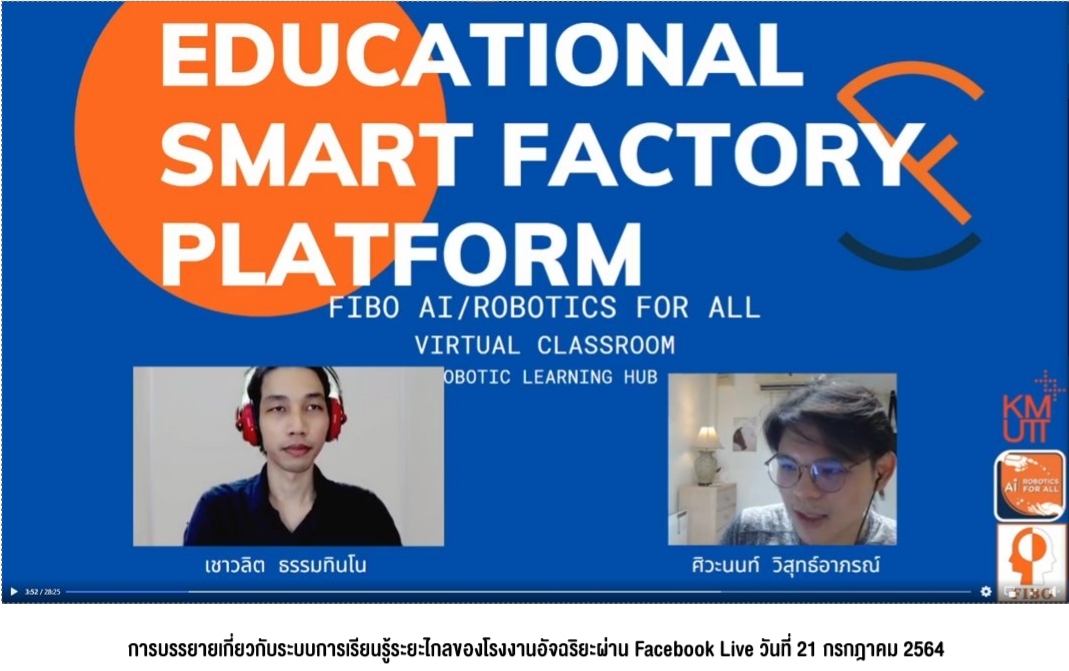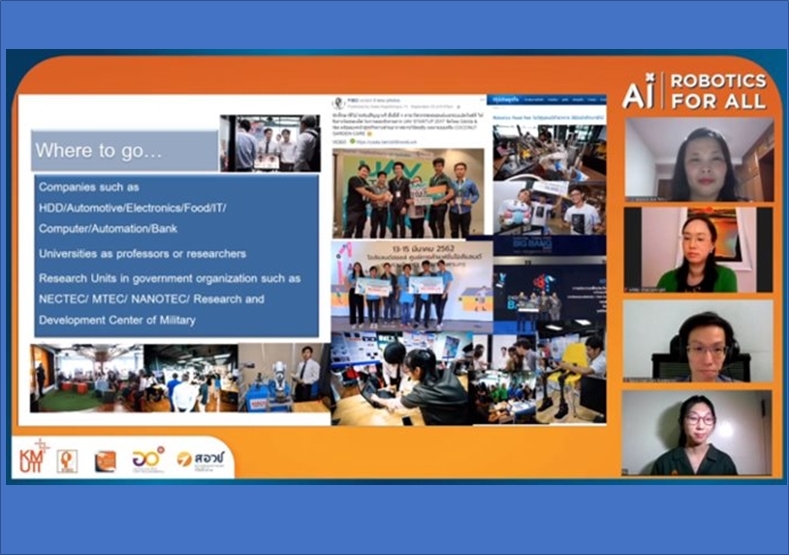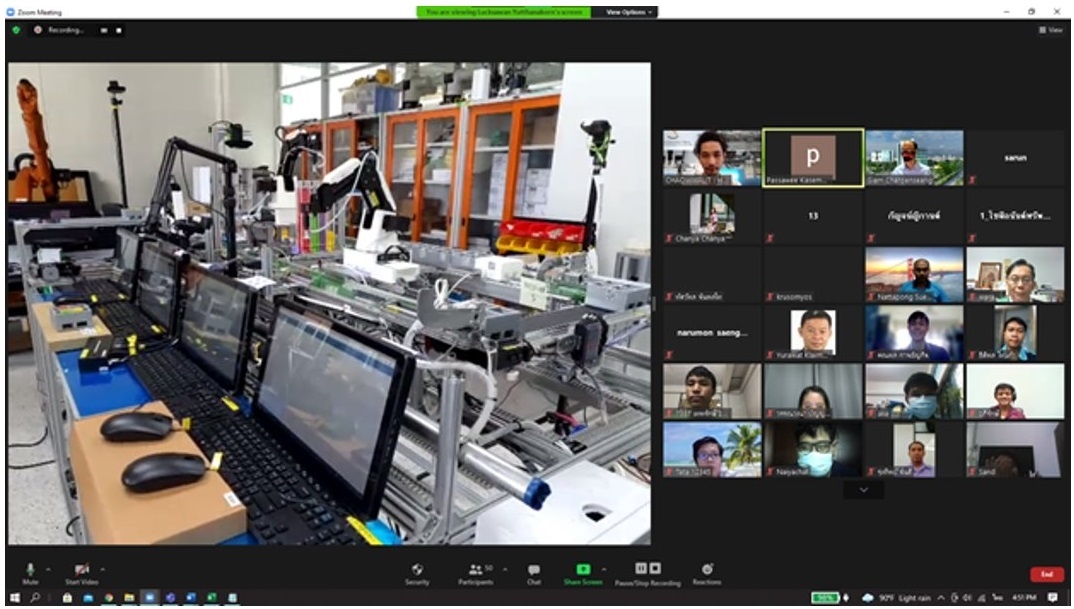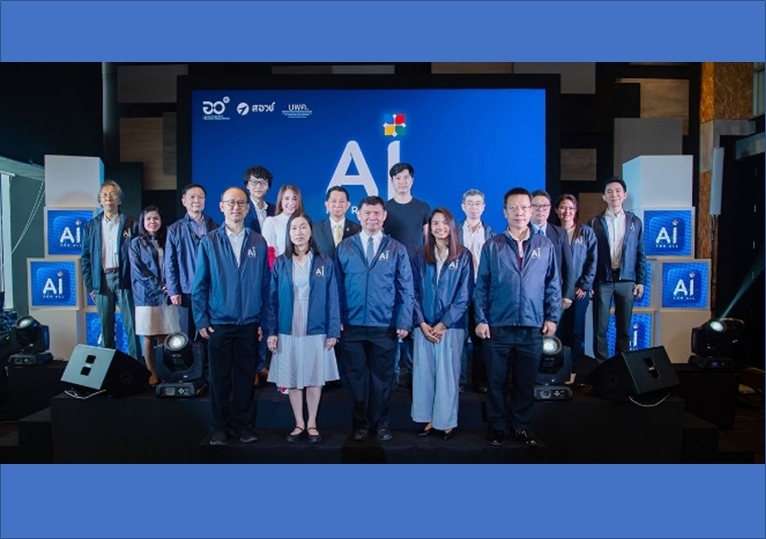In an era where technology plays a vital role in society and permeates all aspects of life, artificial intelligence (AI) and robotics emerge as technologies that can enhance people’s quality of life, increase productivity, and drive economic and societal progress. However, as AI and robotics are still in their early stages of development in Thailand, there is an urgent need to cultivate capacity and skills in these fields among the Thai population.
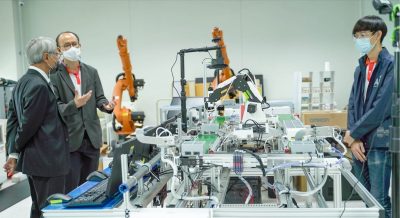
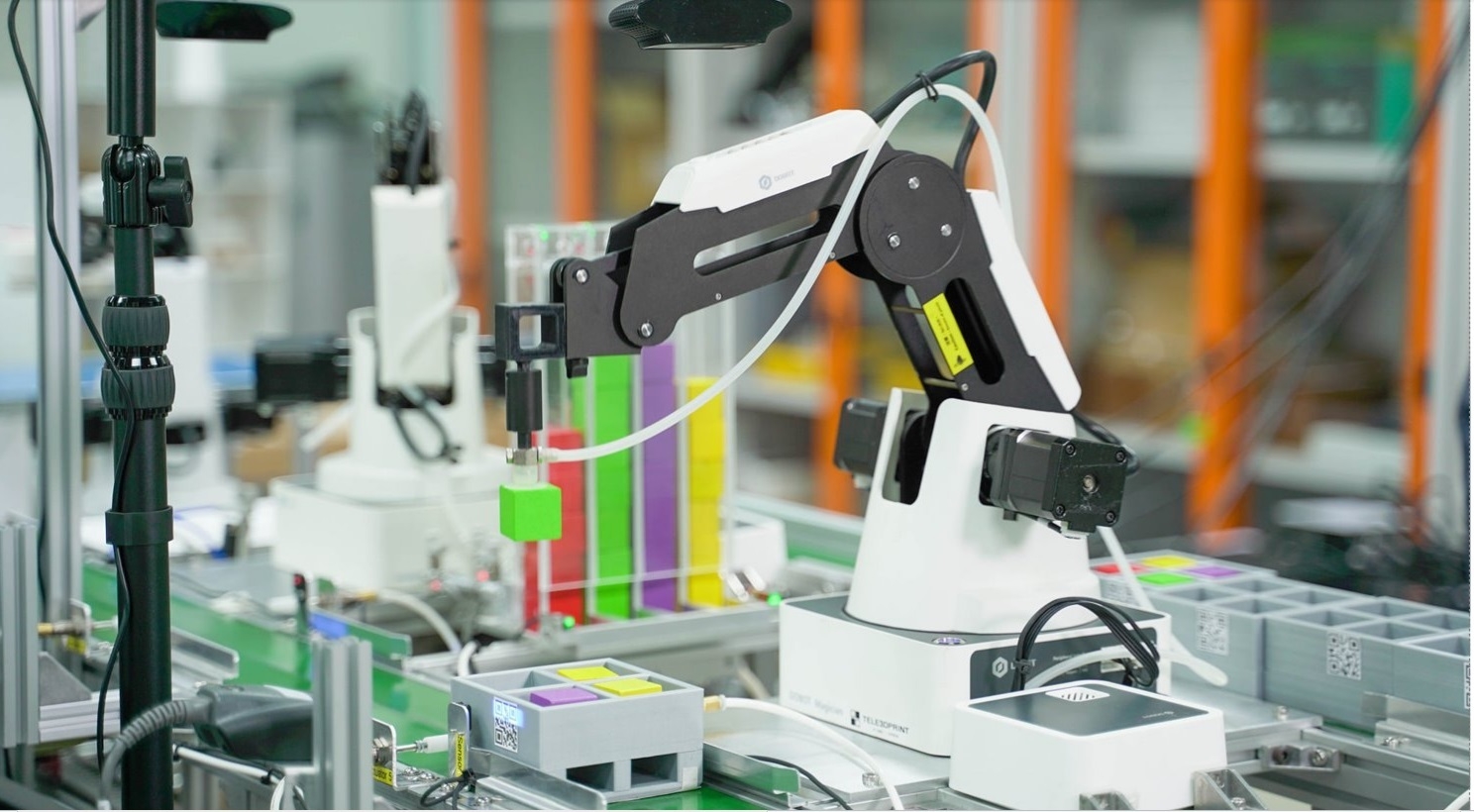
“Robotics for All” is a project initiated by the KMUTT Institute of Field Robotics (FIBO) with the aim of enhancing the robotic skills of innovators, researchers, engineers, and startups. This project is one of five under the “AI/Robotics for All” Program, which is funded by the Program Management Unit for Human Resources & Institutional Development, Research and Innovation (PMU-B) under the auspices of the Office of National Higher Education Science Research and Innovation Policy Council. The overarching objective of the AI/Robotics for All Program is to leverage AI and robotic skills to support the nation’s social and economic development. The first phase of the Robotics for All project took place from May 2020 to July 2021, with the second phase commencing in September 2021.
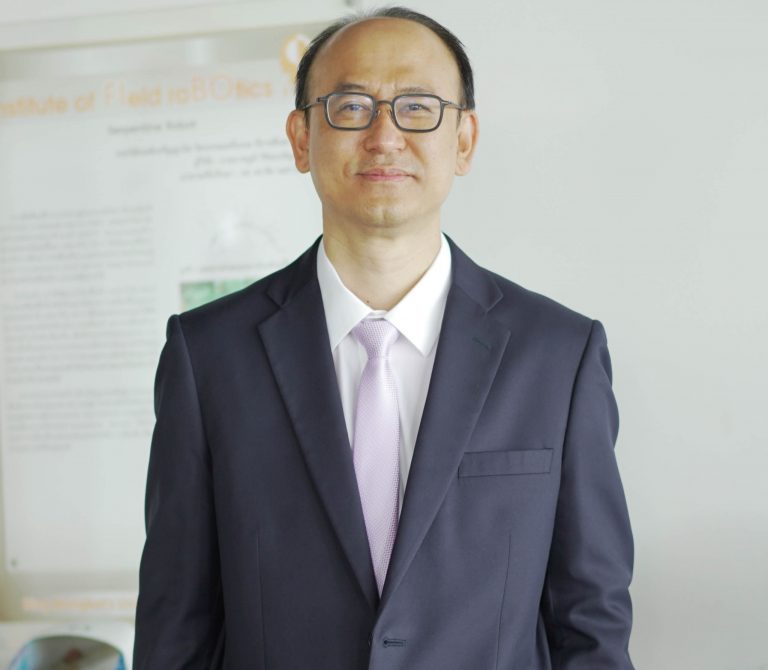
Assoc. Prof. Dr. Siam Charoenseang, FIBO director and the project leader, states that FIBO is the first institute in Thailand to offer both undergraduate and graduate programs in robotics. FIBO positions itself as a “cradle of future leaders in robotics.” In line with this commitment, the institute aims to enhance the robotic skills of various segments of society, including school and college students, researchers, developers, innovators, startups, SMEs, and the general public. By doing so, they aim to effectively utilize knowledge in robotics for economic and social benefits.
Robotics for All encompasses activities designed for two specific target groups: the general public and startups. There are four sub-projects tailored for the general public, as well as one sub-project specifically catering to innovators and developers who are the driving force behind startups. The activities launched during the first phase included the Advanced Learning Lab / Resource Sharing, System Integration Demonstration, and Premium Training.
In the Advanced Learning Lab / Resource Sharing activity, a teleoperation control system for 3D prototype printing called Tele 3D Printing was developed. The system consists of 20 sets of control units and a website for remote access, complete with an online instruction manual. Tele 3D Printing enables teachers and students in the same area to share 3D printers through an online platform. With this system, students can witness the printing process in action via the online platform, while teachers can manage and administer the system online. Currently, the system has been installed in 16 schools and 4 universities across various regions of Thailand – 9 in Central Thailand, 3 in the north, 12 in the northeast, 2 in the east and 4 in the south. The aim of Tele 3D Printing is to promote shared resources and equality in the classroom, providing students in rural areas with easy access to robotic technology.
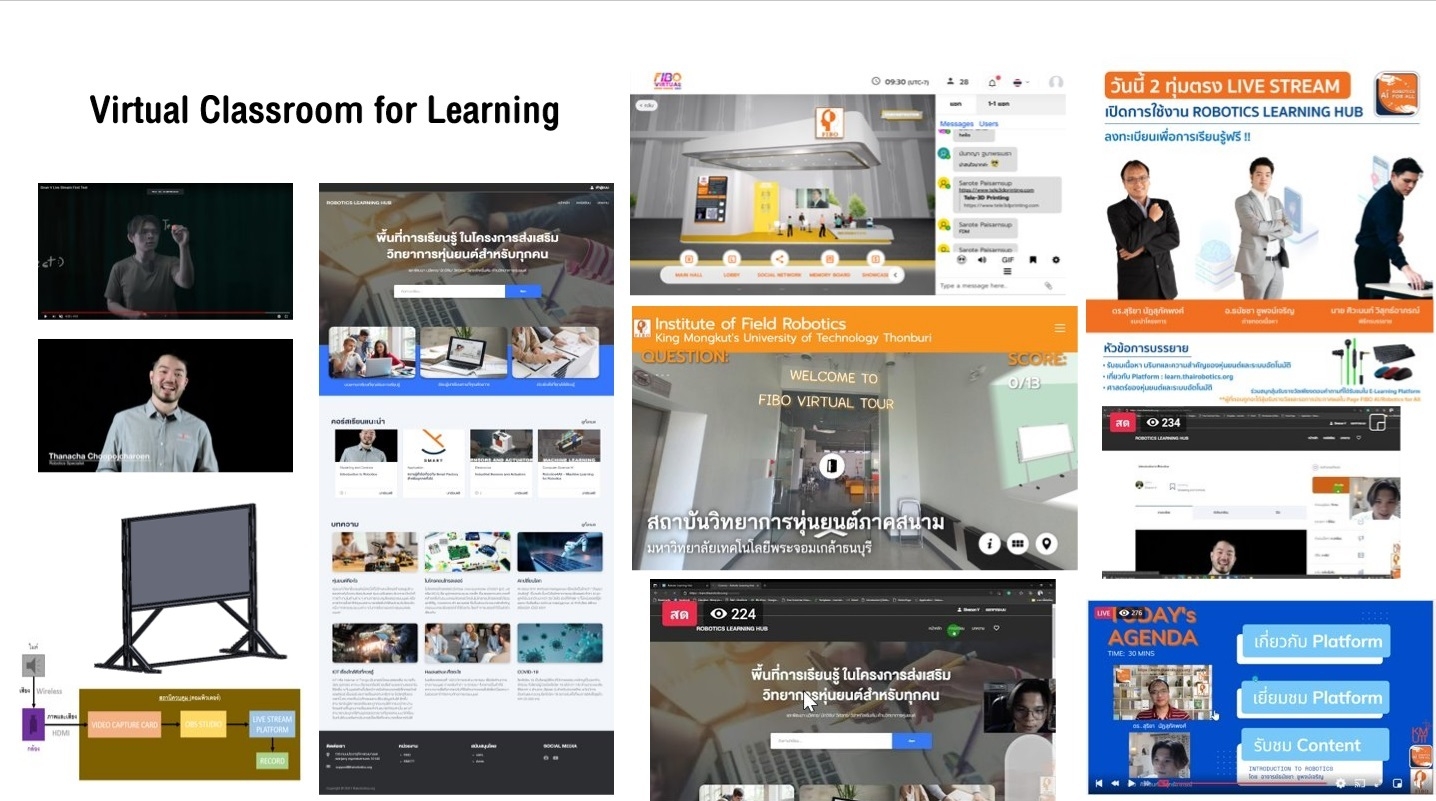
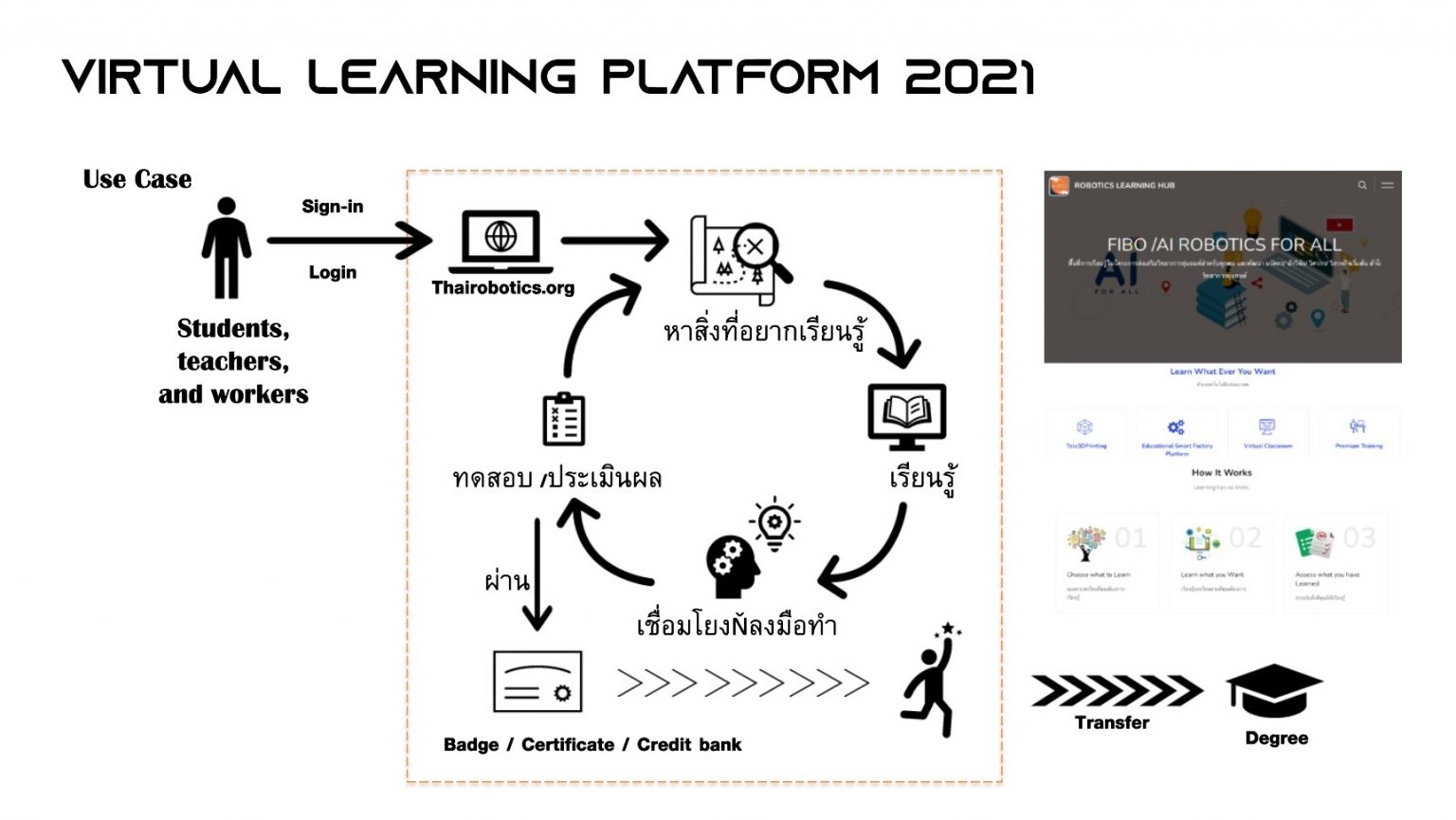
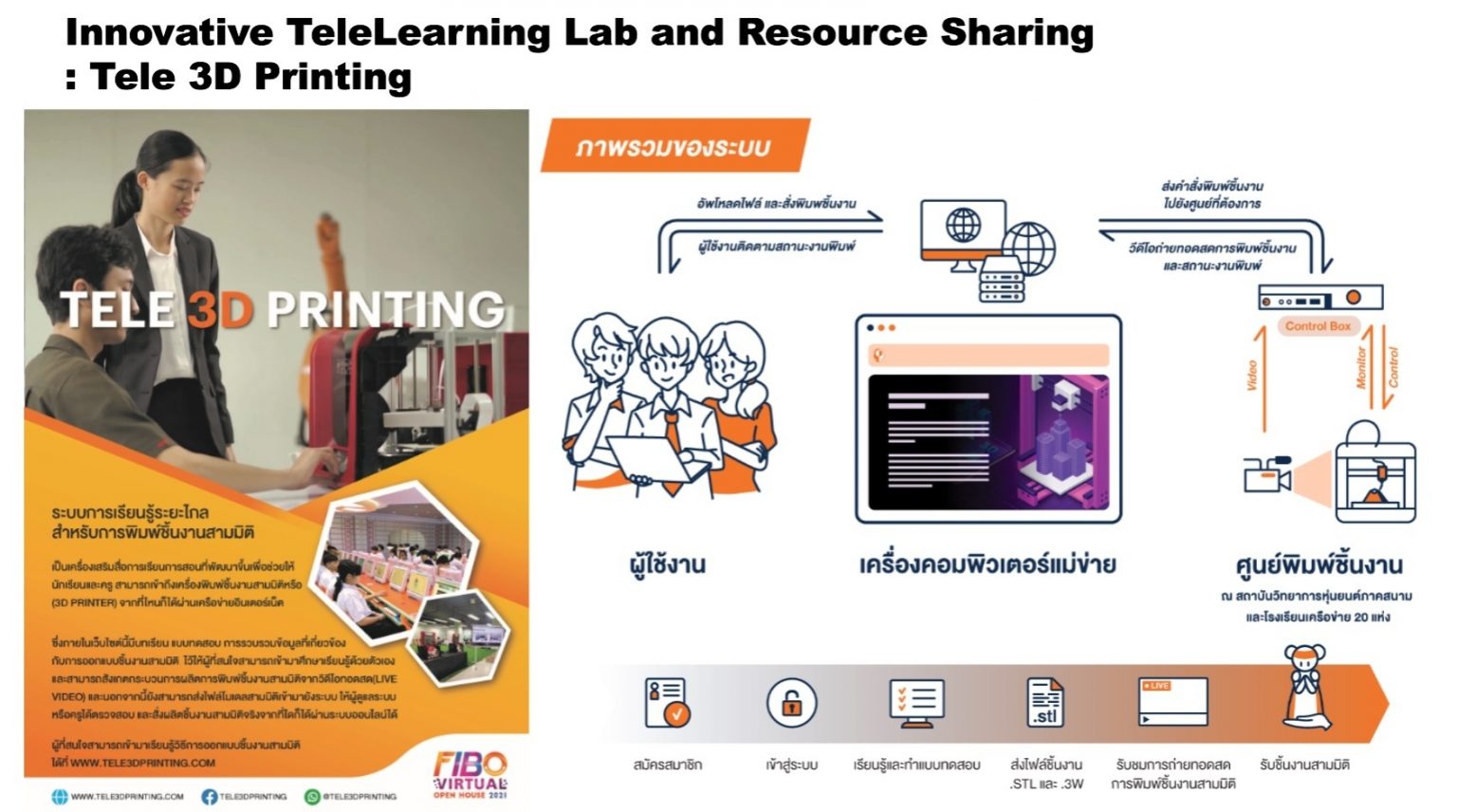
In the System Integration Demonstration, three affordable platforms were developed, namely a service robot, a logistic robot, and a robot designed for the Tele-signing of FIBO-School Consortium MoU. These affordable platforms will facilitate the application and adoption of robots, enhancing the competitiveness of Thai industries.
The FIBO-School Consortium has been established to support the Premium Training activity, and currently, 56 schools are participating in the consortium to contribute to the design of a robotic engineering and automation course for high school students. Robotics is also offered through the cooperative education and work-integrated learning (Co-op/WIL) program, while non-degree courses in robotics and industrial internet of things (IIoT) have been developed for workforce upskilling program, enabling innovators and developers to acquire new knowledge and skills applicable to their respective jobs.
Through the Robotics for All initiative, awareness and understanding of AI and robotics have been fostered, benefiting a total of 32,000 individuals in its first year of implementation, surpassing the initial target of 7,000 beneficiaries. In the second phase, the FIBO team aims to further expand its efforts by including 20 additional schools in its resource sharing activity and designing more training courses to support workforce development.
